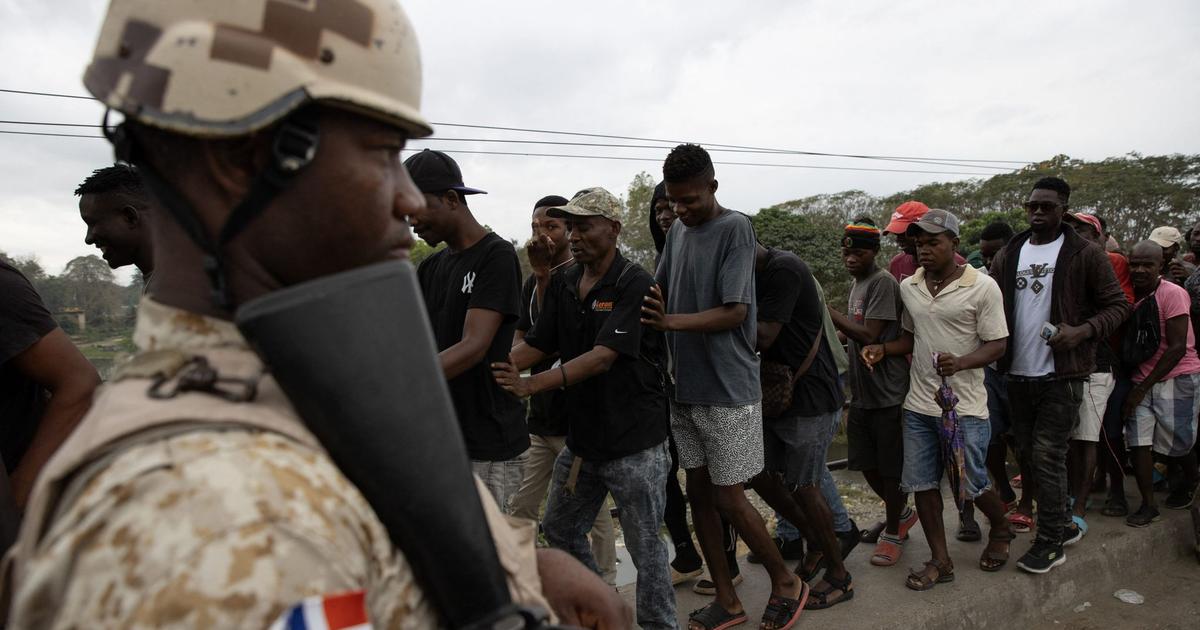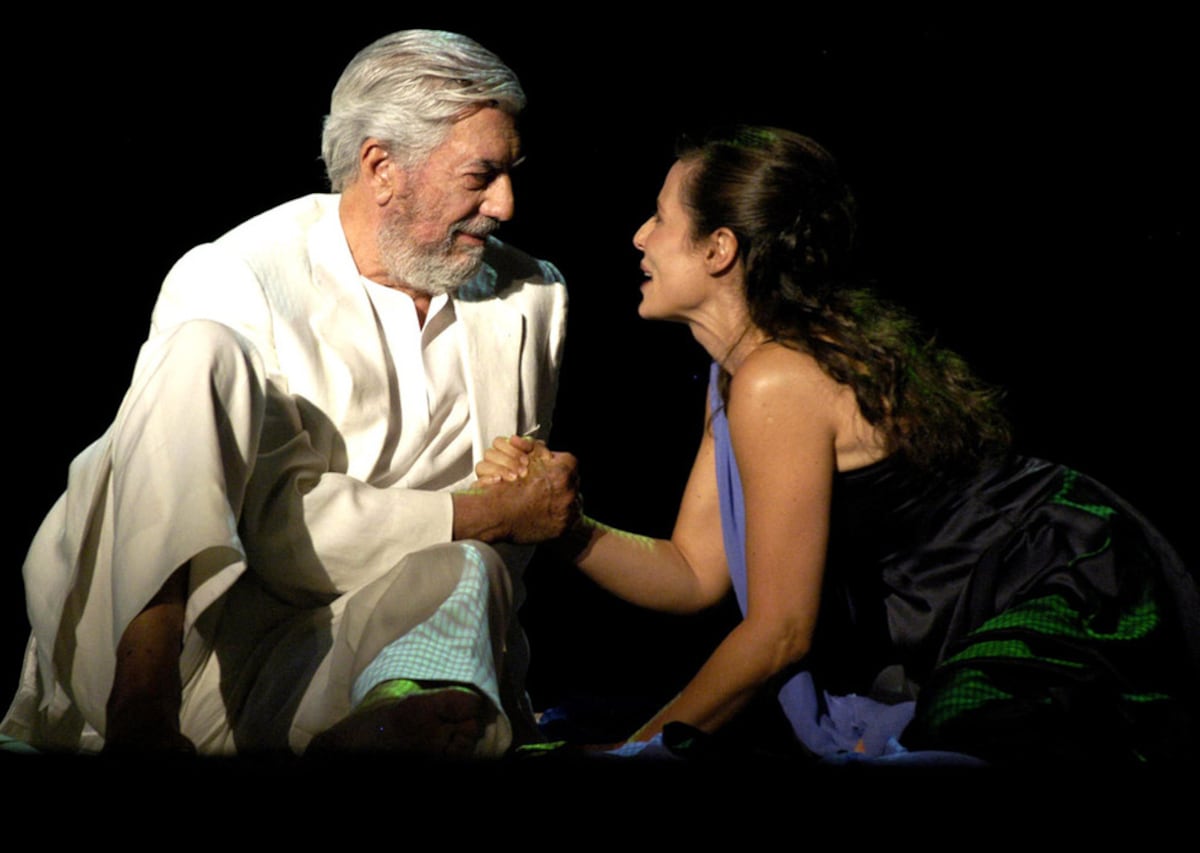The Peruvian boy who lived in Paris when Paris was a party, the young man who followed the debates of Sartre and Camus, the novelist trained by reading Victor Hugo and Flaubert, the reader who dreamed of emulating the heroism of Malraux, would build with the time a work that would deserve what no author who did not write in French, for centuries: admission to the French Academy.
France, capital of Western culture, honors the universality of Mario Vargas Llosa, a writer who, from the Peruvian and Latin American particularity, has illuminated permanent issues of the human condition.
A constellation of novels, short stories, dramas, comedies, essays, his work is literature.
Like so many others, I have lived reading it for more than half a century.
I was moved by the moral fiber of his first novels, written under the passionate breath, very French, of social indignation.
I celebrated the playful and sensual vein of his love novels, that blessed resource of escaping from reality to imagine lives tied to desire.
Imagine them and tell them, with Flaubertian resources and limpid prose.
I was shaken by
The War at the End of the World
, ambitious and epic like
Les Miserables
, referring to a pre-modern rebellion that seemed remote at the time but, over time, would prove to be premonitory.
I followed him in his ideological battles of the eighties, when after witnessing the horrors of the Shining Path, he wrote
Historia de Mayta
, the incarnation of the guerrilla in love with his moral purity who is suddenly assailed by the truth of his own errors, unrealities, dogmatism, and crimes.
In
El pez en el agua
I witnessed the confession about the first dictator that Vargas Llosa confronted, his own father, whose abuses would reveal to him the ultimate entrails of the continent's misfortunes, the affiliation of power.
The natural derivation had to be
La fiesta del Chivo
, a top novel inspired by
the opposite affiliation, that of freedom.
Unlike other famous novelists of our language whose works reveal an almost erotic attraction to power, the creation of Vargas Llosa dissected power like a surgeon cancer, not to wallow in its murderous malignancy but to show it, exhibit it and remove it.
Power or freedom: has it not been the central dilemma of all civilized society?
And literature, isn't it the universal antidote against the poison of power?
The wind of universal history carried him relentlessly.
And the wind does not stop.
Vargas Llosa has lived under the siege of fanatical armies that in the 20th century paid homage to totalitarian dictators (Lenin, Stalin, Mao, Castro) and now revere his populist caricatures.
He responds by writing.
The bastion of freedom remains.
Vargas Llosa, who by conviction defended the Cuban Revolution for a decade, separated from her because her sense of his
authenticity
was incompatible with the radical lie of Castroism.
But that is not why he forgot the misfortune of our countries.
What could be the way out?
In a recent rereading, I understood that
The War at the End of the World
was key in the search for him.
And his discovery has taken on a disturbing validity.
The novel, it will be remembered, takes place in the remote Brazilian
backlands
but its drama is universal: the battle between reason and faith.
Vargas Llosa's heart (and that of readers like me) was with the damned of our land, the followers of Conselheiro, the redeemer of Canudos, who was surrounded by a suffering, poor people that few authors have recreated with such mercy.
Faced with this vast phenomenon of faith stood the cold and geometric Reason, which a republican government seeks to impose by blood and fire.
The "myopic journalist" who stars in the novel understands that such an opposition, between the so-called millenarian of the tribe and the rational and modern precepts, can only lead to a total, final conflagration.
"In Peru, we have a living Canudos in the Andes," Vargas Llosa declared at the time.
But what to do?
Then came —it seems to me— its moment of definition, which illuminates our current circumstance.
As attractive as the enchanted world of messianism may be, with its fervent communities and charismatic leaders, if we believe in the possibility of a peaceful, civilized, free, fraternal, dignified, and even prosperous common life, we are morally obliged to
disenchant
it through reason .
.
Faith concerns man's relationship with God, not the
polis
.
At the end of that novel, and when confronting the project that Marxism (millenarianism disguised as rationality) had for Peru and Latin America, Vargas Llosa came to the conviction that there was no better option for the kingdom of this world than the modest republican utopia. , democratic and, above all, liberal.
How to bring it closer to the members of the tribe, without imposing it?
How to ensure that they do not surrender to new political messianisms?
It remains the theme of our time.
But today is a holiday.
Today the French Academy recognizes the universality of Mario Vargas Llosa and recognizes itself in it.
Power is not the protagonist of this story.
It is literature, life in freedom.
Enrique Krauze
is a historian and essayist.
The last book of his published by him is
Spinoza in Parque México
(Tusquets).
Subscribe to continue reading
Read without limits
Keep reading
I'm already a subscriber

/cloudfront-eu-central-1.images.arcpublishing.com/prisa/H5DZ32TIJ4WEND2VVVRD7XWD7M.jpg)




/cloudfront-eu-central-1.images.arcpublishing.com/prisa/KSQTCK7XJVBFROZXUOP5CEEXV4.png)
/cloudfront-eu-central-1.images.arcpublishing.com/prisa/6CHDRQ5XQBCYJNCQNWVWDVWB74.jpg)

/cloudfront-eu-central-1.images.arcpublishing.com/prisa/GE2HIPPGSREYXNPF3G7BWKT62U.JPG)